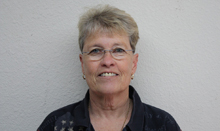Champions of Change Blog
A Universal Token
Posted by on May 24, 2012 at 9:00 AM ESTGail Belmont is being recognized as a Champion of Change for her dedication to service and her continued support for fellow veterans.
As a Vietnam veteran and founding member of Quilts of Honor America, I am honored for the opportunity to support our warriors and veterans. My service in the Army began with playing Taps at the services of our fallen warriors and I have since found great duty and honor in being able to show my gratitude for those who have served and continue to serve our country. I am overwhelmed with gratitude to be awarded a Champion of Change by the White House.
Cpl. George A. Burrows, USMC 1968-1969, wrote me with these words, “Thank You for the Quilt, it’s beautiful. It’s something I will not only use but will pass down to my grandson with the story of how I got it. What you people are doing means more than you could know to people like me. When I came home from Nam [Vietnam] we were not honored. This Quilt is MY WELCOME HOME!” His letter is a resounding sentiment that I have heard countless times. It is these words and other similar sentiments that have been our inspirations in forming and growing Quilts of Honor America.
Pursuing a Future for STEM Equality
Posted by on May 7, 2012 at 12:10 PM EST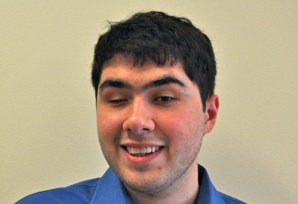
Sina Bahram is being recognized as a Champion of Change for leading education and employment efforts in science, technology, engineering and math for Americans with disabilities.
I would like to thank the administration, those who serve in public office, and everyone else involved with the Champions of Change program for two reasons. First, thank you so much for recognizing and bringing attention to the projects, people, and problems that are a part of science, technology, engineering, and math (STEM). I believe that this recognition can go a long way in affecting an important and lasting positive change for STEM issues faced by individuals with disabilities. Second, I would like to simply express what a singularly humbling and profound honor it is for me to accept this recognition as a White House Champion of Change.
I'll begin by stating that I happen to be blind. I have some light perception and some shape recognition, but for all intents and purposes, I am blind. When I was presented with maps in geography, biology, and civics classes at school, I would have to either cue off of verbal descriptions, intuit the relationships among important locations, or rely on expensive, much lower-resolution tactile copies of the graphics my classmates used. When I was given a flowchart to analyze in biology, economics, or computer science courses, I either asked someone to translate it into Braille or read its contents to me.
Want a Blossoming STEM Career? Just add Confidence and a Little Assistance
Posted by on May 7, 2012 at 12:05 PM EST
Henry Wedler is being recognized as a Champion of Change for leading education and employment efforts in science, technology, engineering and math for Americans with disabilities.
Blind people have no less of a desire than sighted people to pursue challenging and rewarding careers, including those in science, technology, engineering and mathematics (STEM) and, in doing so, contribute to society. Unfortunately, many people, including the blind, believe that these fields are too visual and, therefore, impractical for blind people to pursue. Contrary to this belief, all that is missing is the confidence and some practical assistance to fulfill these dreams.
Until I gained the necessary confidence from the National Federation of the Blind in high school and joined Dean Tantillo’s group in the Chemistry Department at the University of California, Davis, I, too, doubted that I could study organic chemistry as a blind graduate student. As I complete my first year of the Ph.D. program, studying computational organic chemistry, I am now confident that I will succeed in graduate school and beyond.
Everyone Should Feel that Learning about Science is “For Me”
Posted by on May 7, 2012 at 12:00 PM EST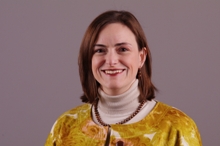
Christine Reich is being recognized as a Champion of Change for leading education and employment efforts in science, technology, engineering and math for Americans with disabilities.
“One of the most pervasive messages of my childhood was, ‘Not for you.’ That’s something that’s incredibly destructive for the life of a child. Places like science museums can dispel those messages more than almost any place else. I remember my few visits to museums as just wonderful. I believe everybody should have that experience. And I do mean everybody.”
- Betty Davidson, retired Museum of Science exhibit developer, biochemist, wheelchair user, and personal mentor
People with disabilities frequently receive the message that science learning is “not for you.” Sometimes this message is subtle, sent through the design of science learning experiences that do not take into account the physical, sensory, and cognitive diversity that exists within our society. Other times, the message is overtly stated, rooted in narrow perceptions of what a person with a disability can and cannot do. It is time for the message to change. It is time for us to take actions that send the message that learning about and engaging in science, technology, engineering, and mathematics (STEM) is possible for all.
Technology Change as the Great Equalizer
Posted by on May 7, 2012 at 11:55 AM EST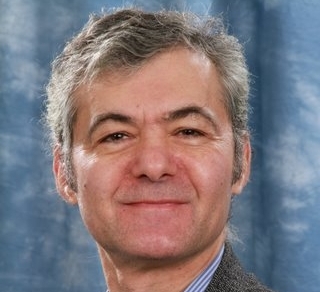
Dimitri Kanevsky is being recognized as a Champion of Change for leading education and employment efforts in science, technology, engineering and math for Americans with disabilities.
I’m honored to work in the field of technology and to be included as a White House Champion of Change.
Technology is the great equalizer that can dramatically improve the quality of a person’s life through the click of a mouse button. Technology is constantly evolving to remove barriers that emerge due to a person’s social characteristics, geographic location, physical or sensory abilities.
There are many examples of how technology is leveling the playing field and opening up doors for all citizens. For example, communication technologies allow people to work from home, making mobility disabilities less relevant. Development in transcription technologies makes it possible for people who have hearing loss to participate in meetings in the workplace and advance their education more easily.
Eliminating Barriers to Entry: Increasing Braille Used in STEM
Posted by on May 7, 2012 at 11:50 AM EST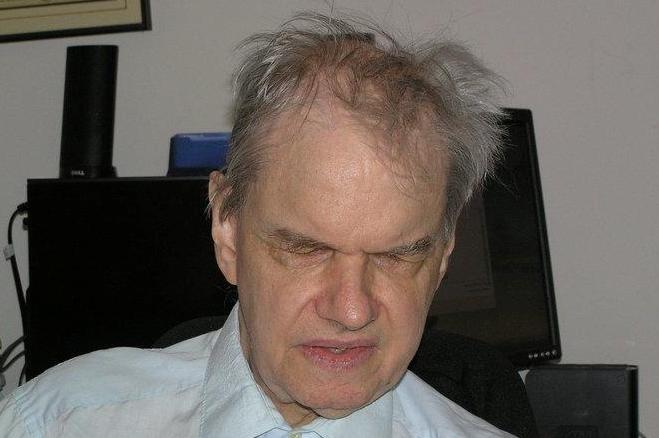
John Boyer is being recognized as a Champion of Change for leading education and employment efforts in science, technology, engineering and math for Americans with disabilities.
Blindness is the most prevalent impairment in the world. The World Health Organization estimates that there are 314 million people with vision impairments; 45 million of whom are blind. Every five seconds one person in the world goes blind and a child goes blind every minute.
From his home in Madison, WI, John Boyer supervises an international group of software developers who are working to create programs designed to increase educational and employment opportunities for persons in the blind community by making current STEM research and dialogue available to blind people.
- &lsaquo previous
- …
- 112
- 113
- 114
- 115
- 116
- 117
- 118
- 119
- 120
- …
- next &rsaquo
White House Blogs
- The White House Blog
- Middle Class Task Force
- Council of Economic Advisers
- Council on Environmental Quality
- Council on Women and Girls
- Office of Intergovernmental Affairs
- Office of Management and Budget
- Office of Public Engagement
- Office of Science & Tech Policy
- Office of Urban Affairs
- Open Government
- Faith and Neighborhood Partnerships
- Social Innovation and Civic Participation
- US Trade Representative
- Office National Drug Control Policy
categories
- AIDS Policy
- Alaska
- Blueprint for an America Built to Last
- Budget
- Civil Rights
- Defense
- Disabilities
- Economy
- Education
- Energy and Environment
- Equal Pay
- Ethics
- Faith Based
- Fiscal Responsibility
- Foreign Policy
- Grab Bag
- Health Care
- Homeland Security
- Immigration
- Innovation Fellows
- Inside the White House
- Middle Class Security
- Open Government
- Poverty
- Rural
- Seniors and Social Security
- Service
- Social Innovation
- State of the Union
- Taxes
- Technology
- Urban Policy
- Veterans
- Violence Prevention
- White House Internships
- Women
- Working Families
- Additional Issues

